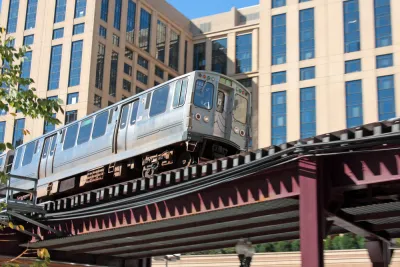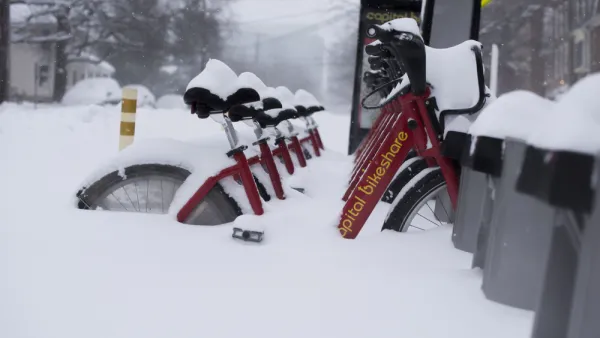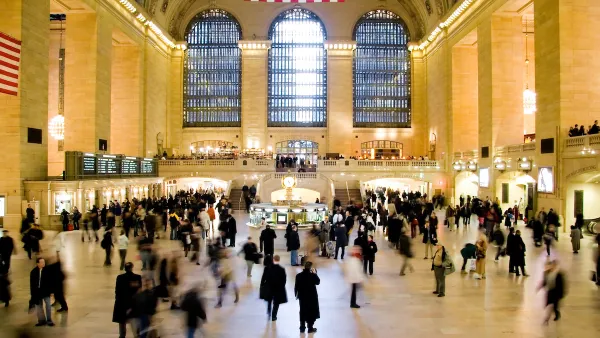The plan points to transit’s role in a cleaner and more sustainable future, but comprehensive changes in transportation policy are also needed.

The Green New Deal introduced by Representative Alexandria Ocasio-Cortez and Senator Ed Markey in February seeks to address climate change and economic inequality by fostering a green economy. The proposal would drastically shift national economic focus, including a move toward more sustainable transportation modes, writes Ben Fried and Hayley Richardson:
Until now, transit has been relegated to the margins of federal policy while the lion’s share of transportation resources go toward highways. The Green New Deal suggests a much different approach -- one that aims to put fast, reliable service within walking distance of as many homes and jobs as possible.
Fried and Richardson argue, however, that federal funding increases for transit are not enough and that more far-reaching policy changes are necessary. They want to see a move away from funding of highway expansion projects to ones that support transit and pedestrian and cycling infrastructure.
Further, they believe that transit projects need to maximize ridership, not just minimize costs. "Transit expansion projects are essential, but they must be built where large numbers of people can walk to stops. It’s worth the additional expense to build transit people will ride. In a climate crisis, we can’t afford to do otherwise."
Federal funding should also focus less on infrastructure and more on service and operations, say Fried and Richardson. "So how should federal policy improve local transit service? To start with, any operating support from the feds should come in the form of matching funds that don’t supplant local transit spending."
In addition, they argue that certain transit projects should be exempt from onerous environmental review processes. "Transportation agencies should also have more leeway to spend federal funds on pedestrian infrastructure. Most transit trips involve walking, and agencies shouldn’t have to apply for sidewalk funds from an alphabet soup of tight-fisted federal programs."
FULL STORY: Transit and a Green New Deal

Analysis: Cybertruck Fatality Rate Far Exceeds That of Ford Pinto
The Tesla Cybertruck was recalled seven times last year.

National Parks Layoffs Will Cause Communities to Lose Billions
Thousands of essential park workers were laid off this week, just before the busy spring break season.

Retro-silient?: America’s First “Eco-burb,” The Woodlands Turns 50
A master-planned community north of Houston offers lessons on green infrastructure and resilient design, but falls short of its founder’s lofty affordability and walkability goals.

Test News Post 1
This is a summary

Analysis: Cybertruck Fatality Rate Far Exceeds That of Ford Pinto
The Tesla Cybertruck was recalled seven times last year.

Test News Headline 46
Test for the image on the front page.
Urban Design for Planners 1: Software Tools
This six-course series explores essential urban design concepts using open source software and equips planners with the tools they need to participate fully in the urban design process.
Planning for Universal Design
Learn the tools for implementing Universal Design in planning regulations.
EMC Planning Group, Inc.
Planetizen
Planetizen
Mpact (formerly Rail~Volution)
Great Falls Development Authority, Inc.
HUDs Office of Policy Development and Research
NYU Wagner Graduate School of Public Service




























